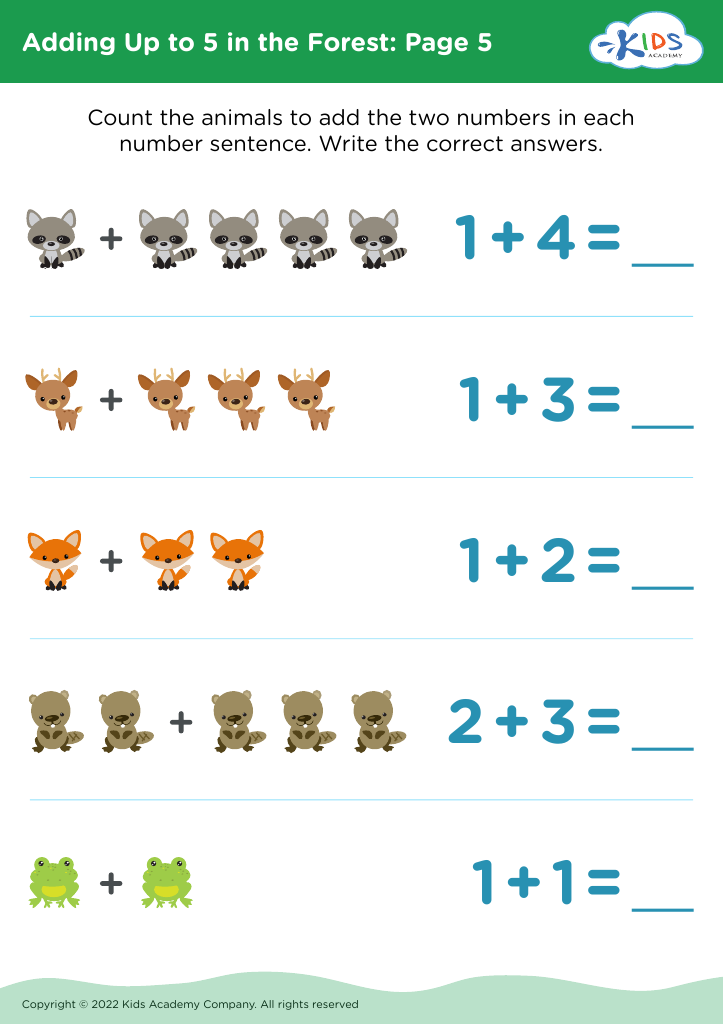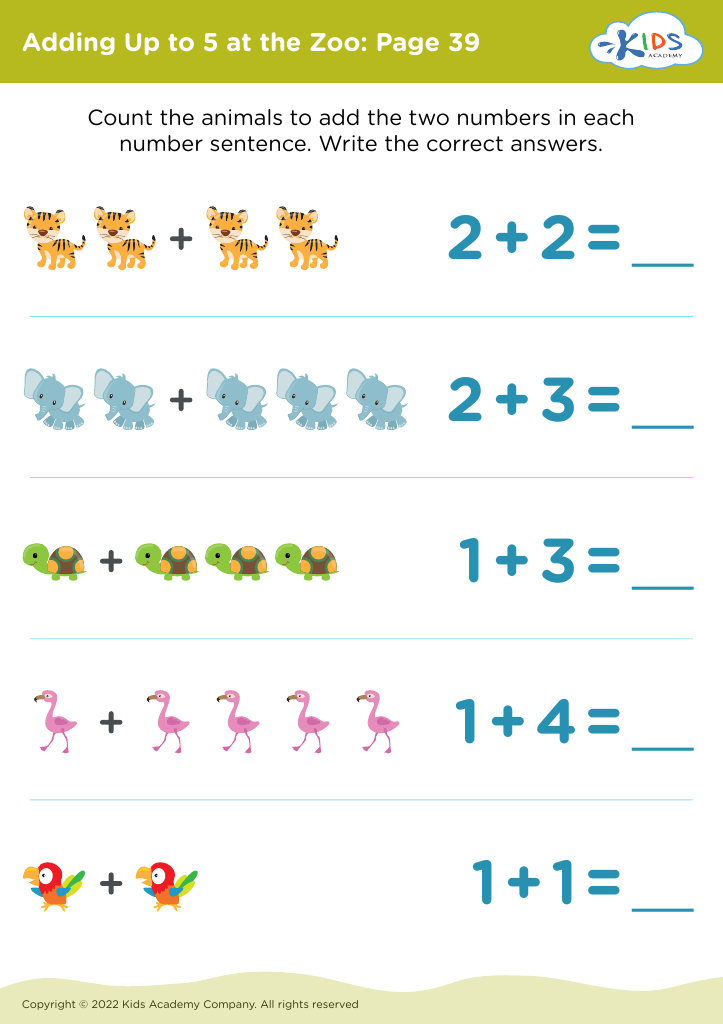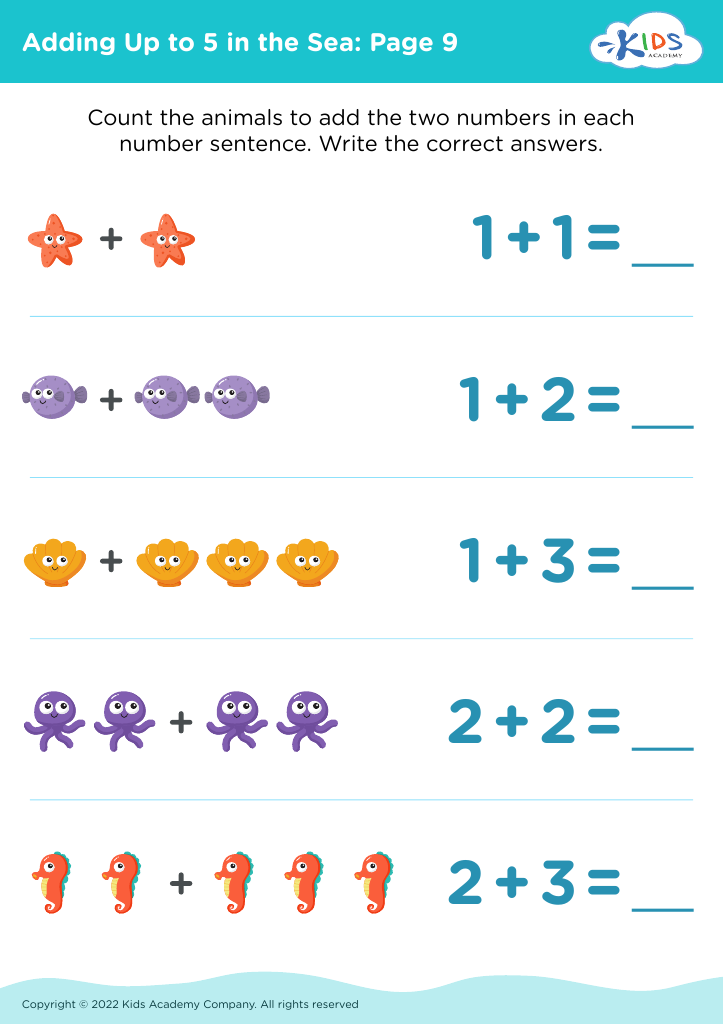Addition skills Addition & Subtraction Worksheets for Ages 3-4 - Page 5
99 filtered results
-
From - To
Developing addition and subtraction skills in children ages 3-4 is crucial for their cognitive and social development. At this age, children are naturally curious and eager to explore mathematical concepts, laying a strong foundation for future learning. Mastering basic number operations enhances their problem-solving abilities and helps them understand patterns and relationships in everyday life.
By engaging in simple addition and subtraction activities, children learn to count, recognize numbers, and grasp the concept of quantity—skills that are essential in all areas of math. These foundational skills also support literacy and critical thinking, fostering overall academic success. Additionally, mastering these concepts promotes confidence, encouraging children to tackle more complex tasks as they progress in their education.
Parents and teachers play a vital role in nurturing these skills. Fun, interactive activities, such as counting objects, singing number songs, or solving simple puzzles, can make learning enjoyable. Moreover, integrating math into daily routines—like comparing quantities during snack time—reinforces these concepts in a meaningful way. By prioritizing addition and subtraction skills for young learners, parents and teachers help set the stage for lifelong learning and a positive attitude towards math.



















